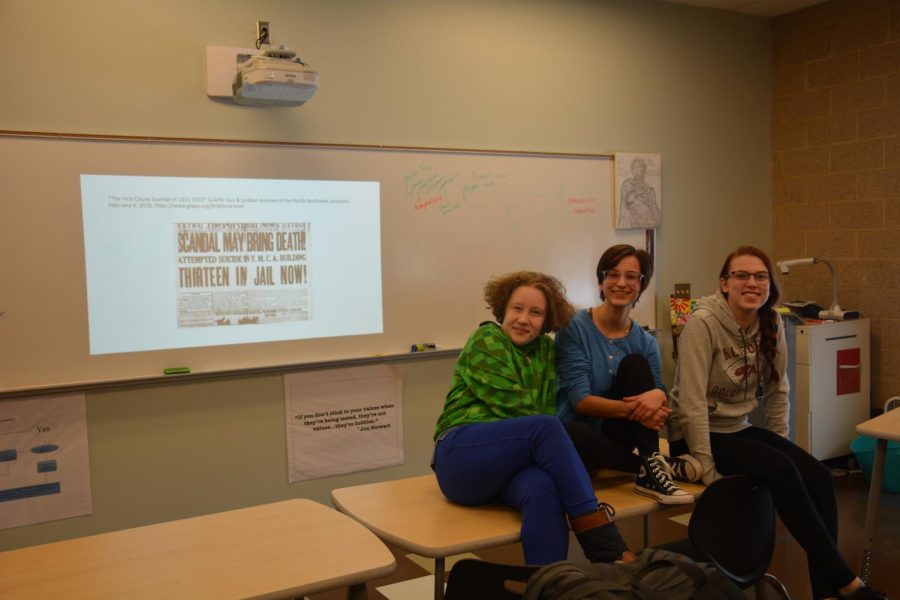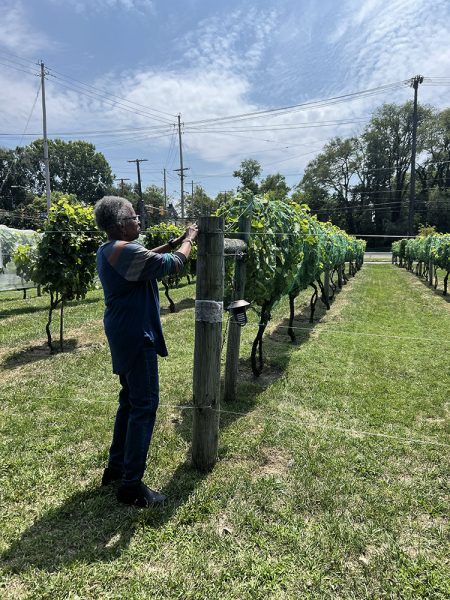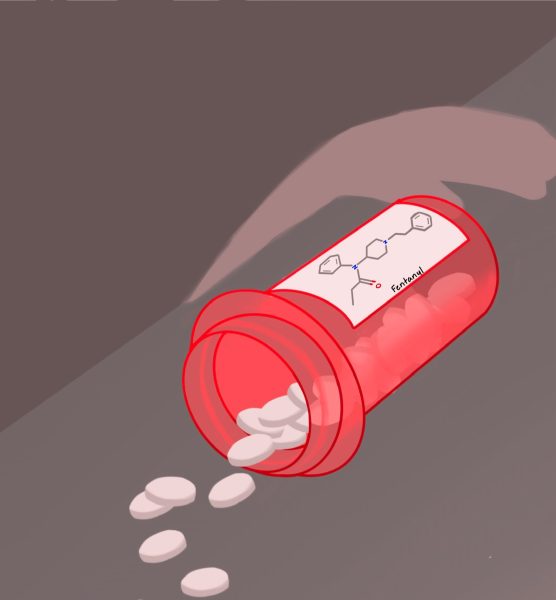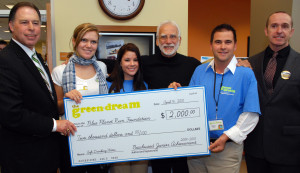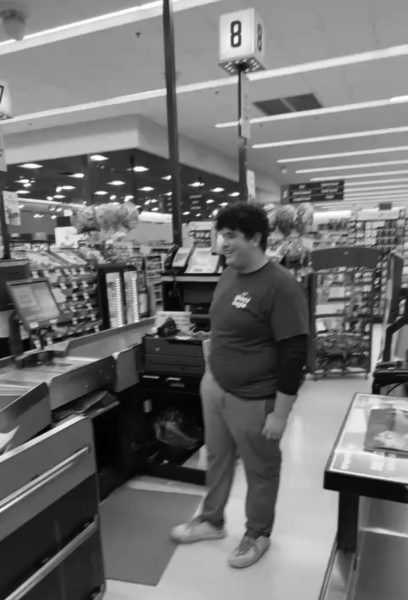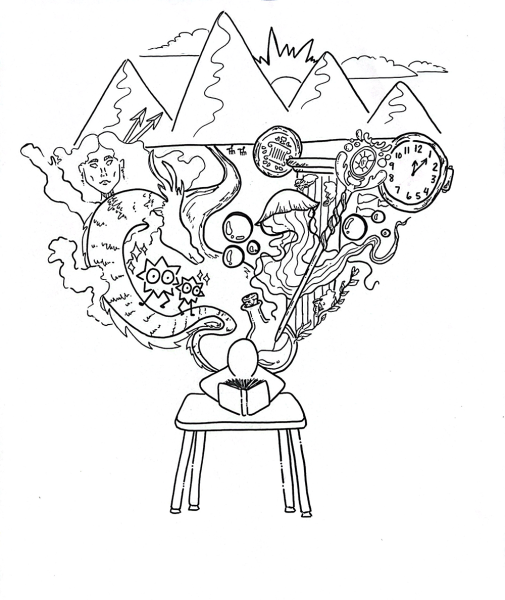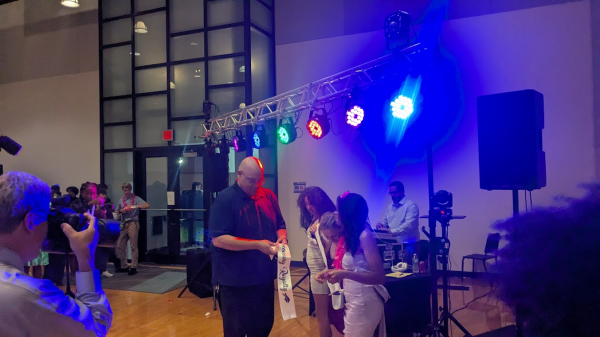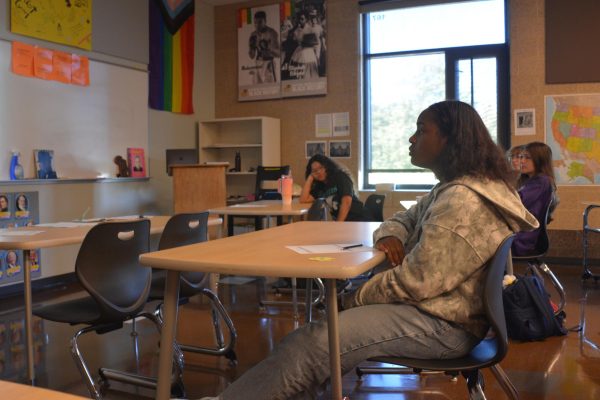GSA Dives Into Hidden LGBT+ History
The Gender Sexuality Alliance (GSA) held a presentation about LGBT+ history in the military in English teacher Casey Matthews’ room on Feb. 21.
The presentation was given by freshman Emily Isaacson and sophomore Mirabelle Wooley and was the second in an ongoing series of talks on LGBT+ history.
According to Wooley, the purpose of the presentation was to shed light on the history of the LGBT+ community as well as the struggles that LGBT+ people went through.
“[We wanted to] educate people on a topic that not a lot of them know about,” Isaacson said. “Everybody was involved in history. Even if they were in the background, even if they weren’t the foremost figure … they were there.”
Each presentation topic comes from students about subjects that they wanted to learn more about.
The first presentation, on Feb. 7, focused on Gay Culture in the 1920s.
“It’s the students who are [deciding what topics to cover],” physics teacher Michael Lerner said. “It’s one of those clubs where no adult is leading this; it’s the group that’s leading this.”
The GSA presentations provide opportunities to raise community awareness on LGBT+ issues.
“At this point, we just need to know more,” Lerner said. “When you know better, you do better, and so I think that these presentations will help us know more about LGBT+ history and hopefully if we entice people to come [then] other people will also learn more.”
Lerner thinks that Beachwood is getting better around LGBT+ issues.
“People seem more accepting, and we hear fewer slurs in the hallway and in public spaces than we did five years ago,” he said.
However, according to Isaacson, there is still room for improvement.
“I think that there are different groups at BHS and some are a lot more tolerant than others,” she said. “There are the activists, the people that maybe don’t really care as much, and the people that still sometimes use offensive language in the hallways.”
“I think that the students here could make themselves a little more aware of gender and sexuality issues,” she added.
Wooley thinks that in order for people to be more accepting, there needs to be fewer hateful things said, such as slurs against gay people.
“They need to be accepting of people no matter how difficult it might be,” Wooley said. “It’s really all about not being demeaning and hurtful because of someone’s sexuality.”
Wooley encourages students to come to GSA meetings.
“[GSA] gives a lot of insight on LGBT+ struggles and triumphs,” Wooley said. “It’s also a great outlet for people to just talk and get something off their chest, and no one will talk about it outside of the room.”
“It’s very open to the whole community,” Lerner said. “It’s a space where you can talk about things that you don’t feel like you can talk about in other places. In GSA, you know people are going to listen to you and respond to you around these issues.”
Lerner has seen GSA make a positive influence on the students involved.
“I’ve seen them become more understanding and accepting of themselves and others through what we’ve done,” he said.
GSA can also help educate those outside of the LGBT+ spectrum.
“[GSA] isn’t just for people who are lesbian, gay, bisexual or transgender themselves,” Lerner said. “It’s also for people who have friends or family who are LGBT+, and that’s basically everybody…Knowing more about how to interact with other people in the world is a useful skill.”
“There’s a lot of diversity in the world, and there’s no way you know what it’s like to be all these different types of people, so sometimes you have to listen to those people,” he added.
At publication, GSA is learning about diverse approaches to the process of coming out through a presentation called “Looking into the Closet.”
Upcoming presentations include “AIDS Policy in the 1980s” and “Ancient Queer History.”
The GSA meets Wednesdays after school in room 164.
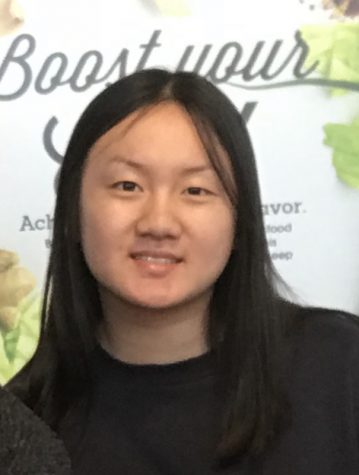
Vivian Li began writing for the Beachcomber in 2016. She covers various news and feature stories in BHS and the community. In addition to writing for the...



